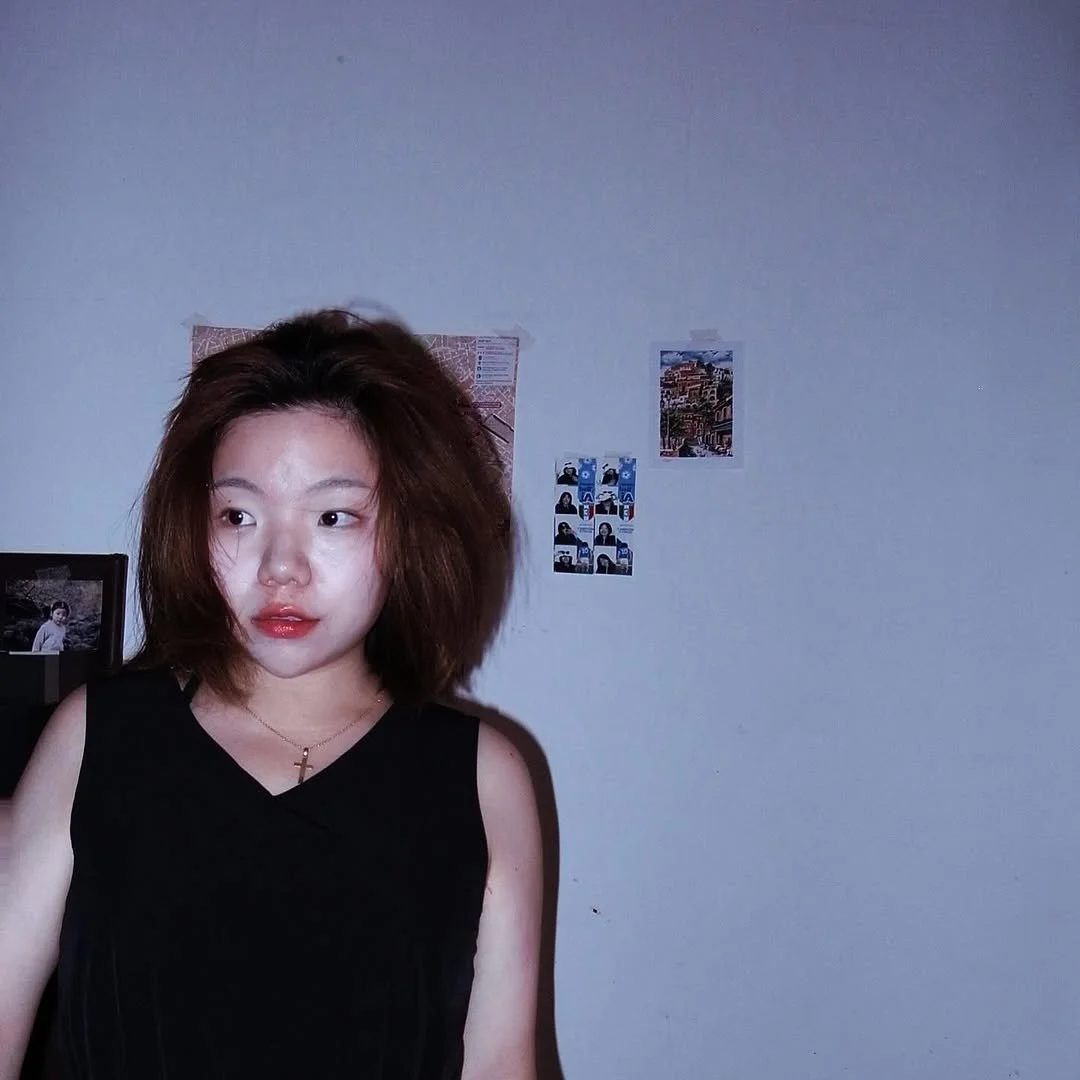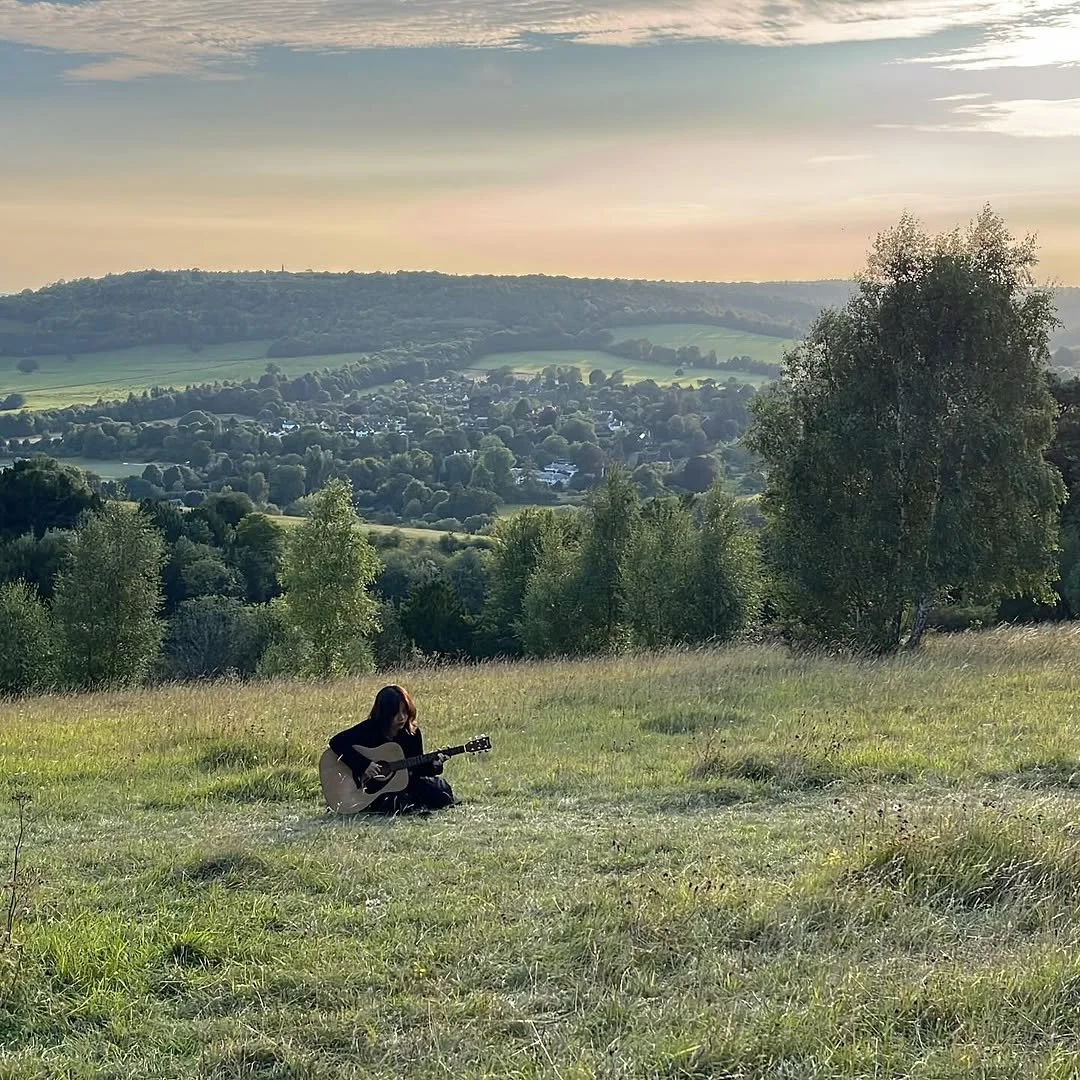Nijju is a singer-songwriter based in both the UK and South Korea.
Spirit Interview 01 - Artist <Nijuu> and Her Debut Album
[Mother Tongue].
Thank you so much for joining us for this interview! To start, could you please introduce yourself?
Nijuu Hello! I’m singer-songwriter Nijuu.
What does your stage name, Nijuu, mean?
Nijuu My real name, Yujin, is quite common, so I considered various stage names. Eventually, I flipped my name, transforming "YUJIN" into "NIJUY." Then, I replaced the final "Y" with a "U," and it ended up sounding like “Need you,” which led to the name Nijuu.
What role does music play in your life?
Nijuu Music used to be everything to me. There wasn’t anything else I wanted to do or was particularly good at. However, after I started practicing yoga, I realized I had been unable to separate myself from my work. Now, music is one of the many elements that make me who I am. It’s something I want to do with responsibility and dedication.
The album title [Mother Tongue] is intriguing.
Does it hold any meaning beyond the literal sense of the term?
Nijuu Beyond the literal meaning of “mother tongue,” I wanted it to convey the idea of a psychological “home.” Since middle school, I’ve lived away from home, first in Seoul and later in London. During those years, I missed my language and hometown deeply. [Mother Tongue] is an album that encapsulates my psychological home.
How did you feel about your mother tongue and hometown while growing up?
How did those feelings influence [Mother Tongue]?
Nijuu Around the winter break of my second year in middle school, I began attending a music school in Seoul, which kept me away from home for a long time. I was a rural girl who became a Seoulite, then a foreigner in London. That blend of loneliness and longing inspired the songs in [Mother Tongue].
Back then, I often felt like I didn’t belong anywhere, which was heartbreaking. Now, no matter where I am or what I’m called, I know it’s all a part of who I am.
This album was created over six years. What does it mean to you, and what was your goal in making it?
Nijuu To me, it’s a record of my early-to-mid twenties. I’ve changed so much since writing these songs that I feel I might never write songs like them again. The goal of making this album was simple:
to release it.
Are there any tracks from the album that hold special significance?
Nijuu All of the tracks are significant because they were chosen from about 30 candidates. I structured the album around three themes:
“Jeong (正)” – Dreams, Ideals
“Ban (反)” – Sadness, Struggles, Reality
“Hap (合)” – Home, Hometown, Love
For example, Gguma (Dream), I Am, and The Door belong to “Jeong”; Minjae, Sadness, and Mind belong to “Ban”; and Kkotjandi (Pink Grass), Dream Tree, Blue Dawn, and Goodbye fall under “Hap.” Listening to the album while following these themes might be an interesting experience!
How were the songs in [Mother Tongue] created? Do you have any specific rules or methods in your songwriting process?
Nijuu The songs were written like diary entries. During the day, I’d organize my thoughts into lyrics, and at night, I’d transform them into MIDI tracks and record vocals. My rule is to keep chords intricate when the instrumentation is simple, and to simplify the chord progression when the arrangement is dense.
The story behind “Kkotjandi (Pink Grass),” a song dedicated to your grandmother, is deeply touching. Are there any other related episodes you’d like to share?
Nijuu There are so many episodes that I’ve even considered making a documentary about my grandmother! (laughs) She writes in her journal every day but is shy about it because she learned to write later in life. When I think of Kkotjandi, I picture her secretly journaling while sitting on a chair or bed, or wearing head-to-toe purple outfits on picnic days.
After [Mother Tongue], do you have plans for your next album or project? What direction do you think your music will take in the future?
Nijuu I hope to release the final installment of my trilogy, [Nijuu In The Light], next year. As for the direction of my music afterward, it’s still evolving, but I aim to create songs that many people can enjoy and that can be shared joyfully during performances.
Finally, is there anything you’d like to say to the readers of this interview?
Nijuu Hello, dear readers! I’d be so grateful if you could listen to my debut album [Mother Tongue]. I hope to meet you all at a live show someday. Above all, I wish you health, happiness, and many wonderful moments ahead!


